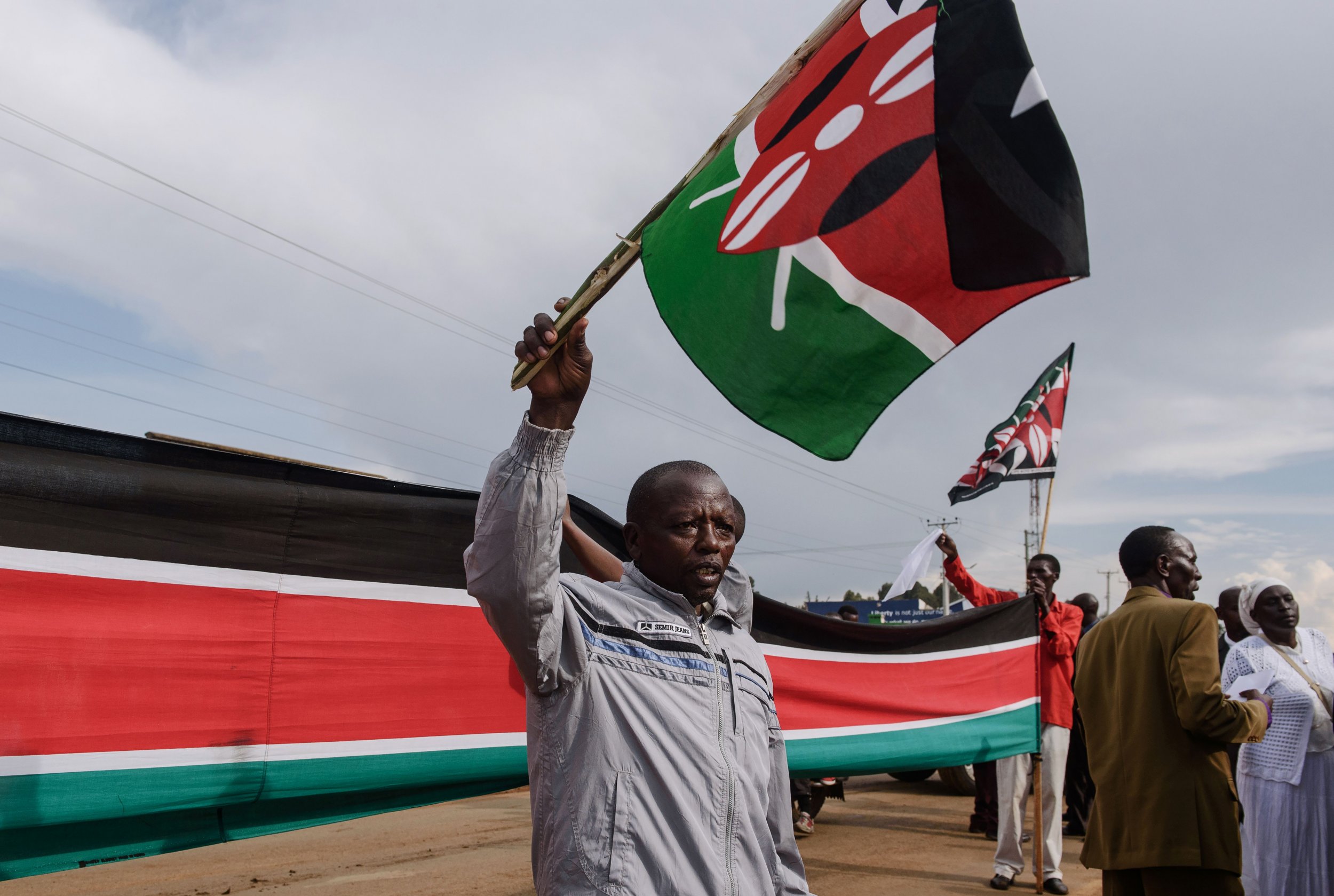
Kenyans are awaiting their general election with a mixture of excitement and dread.
Social media is buzzing with hopeful voters eager to shape their nation's future. But tens of thousands of police are being deployed, and families are stockpiling food, amid fears of a recurrence of post-electoral violence which blighted the 2007 polls and left more than 1,000 people dead.
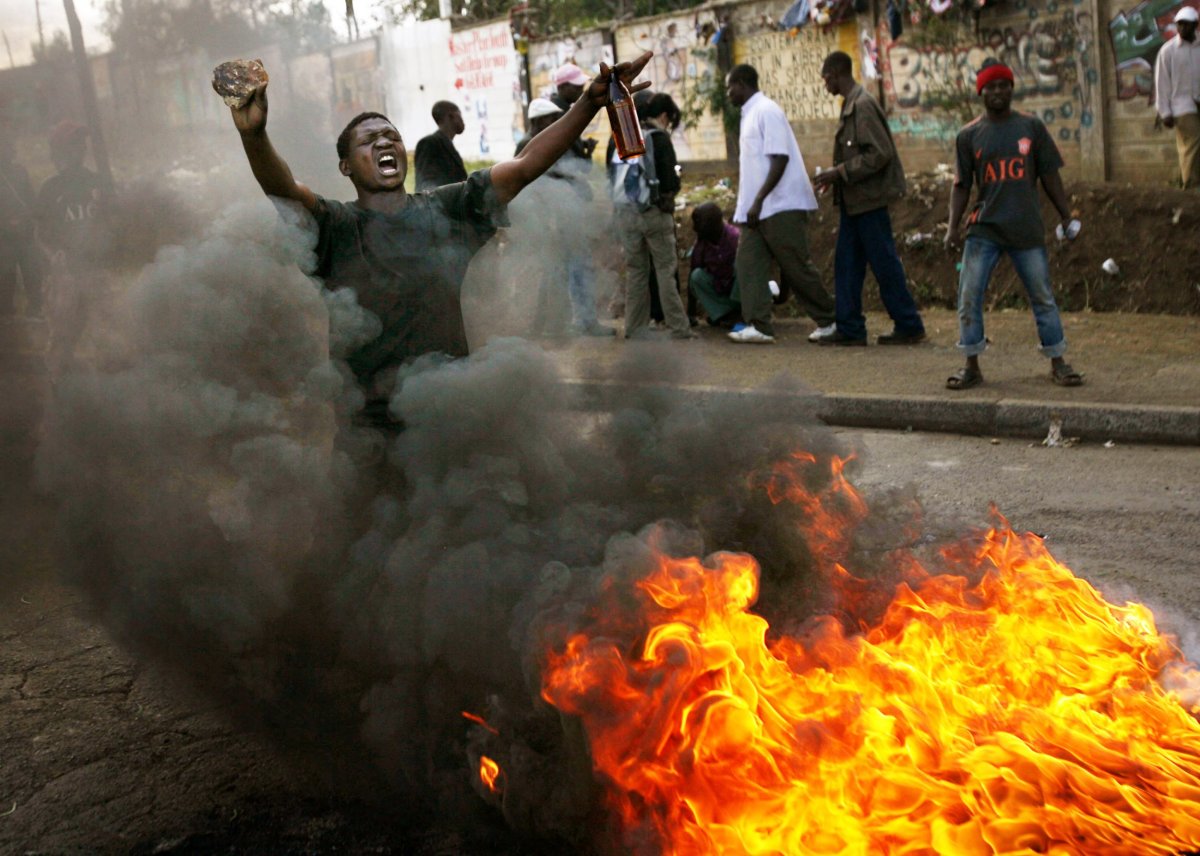
Fear of violence is not the only thing that feels somewhat familiar about the Kenya elections. The two main candidates—incumbent Uhuru Kenyatta and challenger Raila Odinga—are both members of two of Kenya's main political dynasties who have fought for power in the decades since the East African country became independent from British colonizers in 1964.
The Kenyattas: Founders of a Nation
To say that Kenya's current president comes from good stock is an understatement. President Kenyatta is the third son of Jomo Kenyatta, a Russian- and British-educated activist who became the first president of an independent Kenya in 1964.
Jomo Kenyatta was a key figure in an anti-colonialist campaign for an independent Kenya. He was convicted, despite protestations of innocence, of playing a leading role in the violent Mau Mau Uprising against British settlers, which claimed thousands of lives in the 1950s. After serving seven years in prison, Jomo Kenyatta was released and spearheaded the independence movement. He became prime minister in 1963 and the country's first black head of state in 1964, when Kenya became a republic.
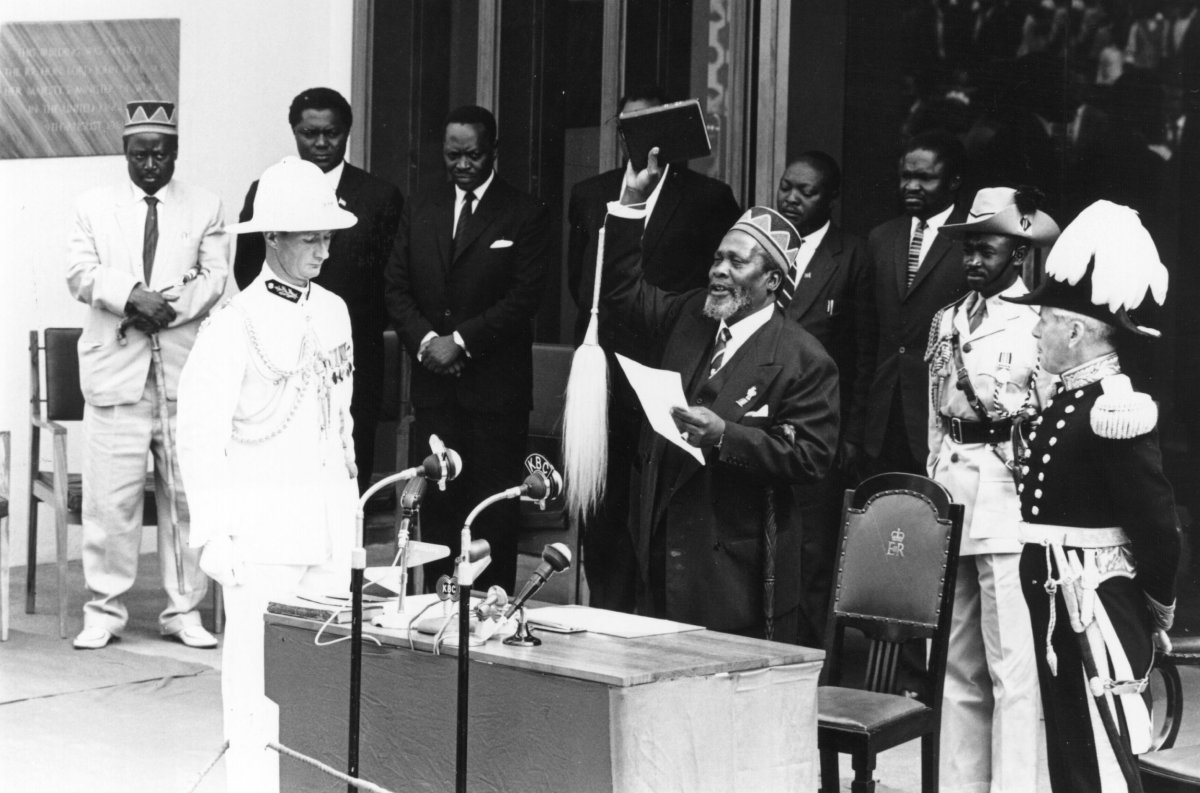
Jomo Kenyatta is a fabled figure in Kenya; he's known as the "Father of the Nation" and has various monuments, including Nairobi's main airport, named after him. He remained in office until his death, in 1978.
His son Uhuru followed him into politics, entering the Kenyan African National Union in 1997 and rising to the party's top rank by the time of the 2007 election. But that vote almost proved to be the end of Uhuru Kenyatta's political ambitions: The International Criminal Court (ICC) accused him of being an indirect co-perpetrator in the postelection violence and charged him with five counts of crimes against humanity. Kenyatta denied the charges, and the case against him was eventually withdrawn in 2015 due to lack of evidence. Kenyatta has since threatened to take Kenya out of the ICC, calling it a "toy of declining imperial powers."
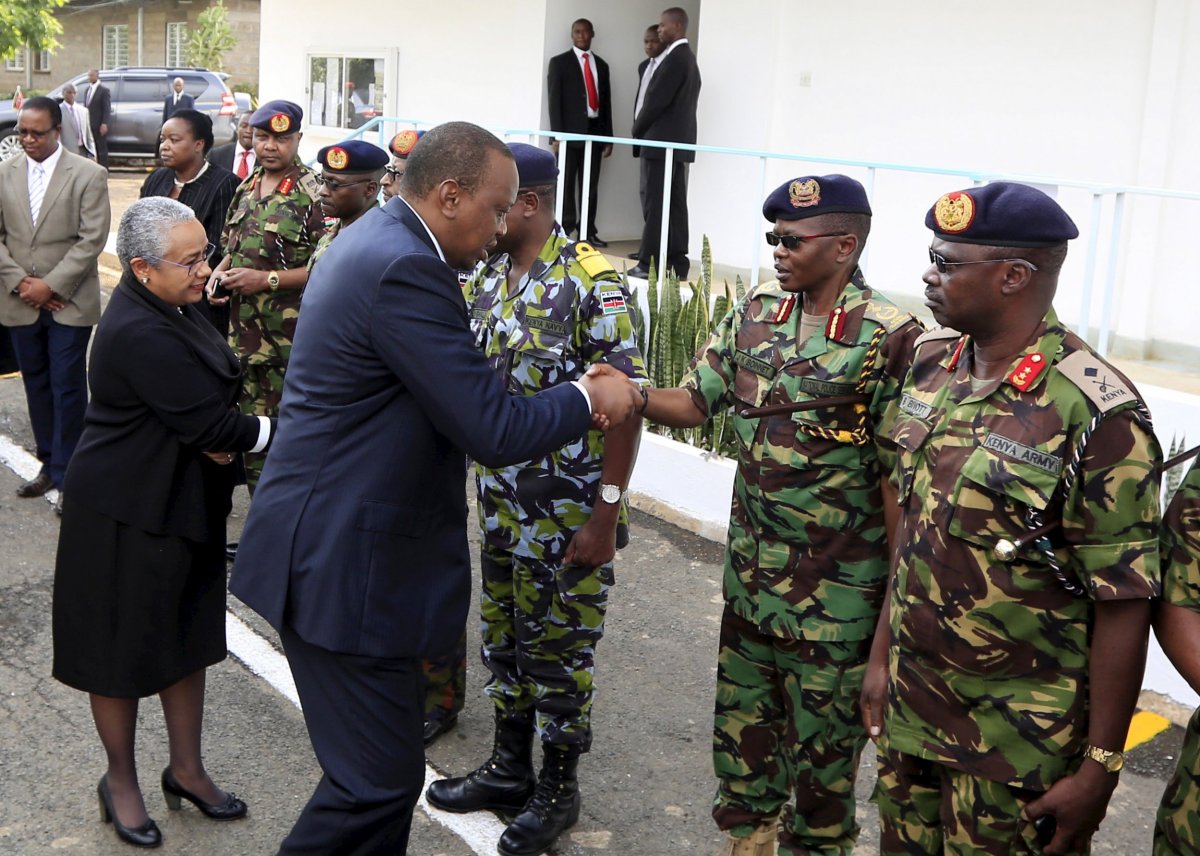
Kenyatta succeeded his father in 2013, defeating Odinga in a close race. He was educated at the private Amherst College in Massachusetts and was estimated to be worth $500 million in 2011 by Forbes, making him the richest person in Kenya. Kenyatta is also the main political leader from the Kikuyu, Kenya's biggest tribe. The 2007-08 postelection crisis was sparked by interethnic violence between the Kikuyu and the Luo, the ethnic group of Odinga—meaning a heavy weight rests upon Kenyatta's shoulders to help avoid conflict this time around.
The Odingas: Decades in the Shadows
When Jomo Kenyatta became Kenya's first independent president in 1964, he appointed Oginga Odinga as his deputy. The latter was a prominent voice in the independence movement, recruiting members of his Luo ethnic group to the struggle. But once the goal had been achieved, Oginga Odinga found that his agenda clashed with that of the then-president's. Jomo Kenyatta favored a centrist approach and close ties with the West, while Odinga held socialist views and wanted better relations with Russia and China. Odinga broke away and formed the left-wing Kenya People's Union in 1966, which was subsequently banned in 1969 by Kenyatta, who also placed his former deputy in government detention.
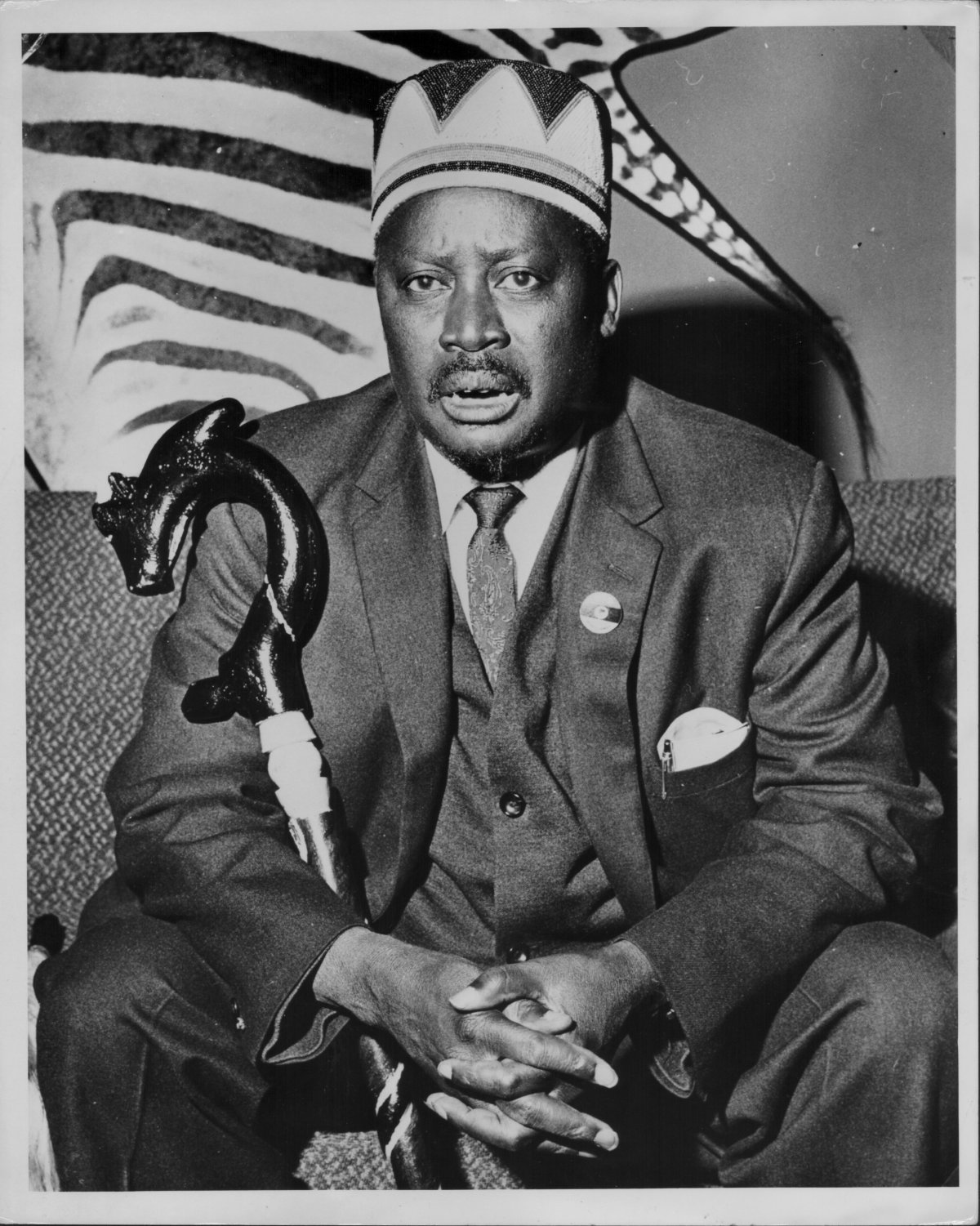
Thus began the Odinga dynasty's decades in the political shadows. Oginga Odinga remained a sideline critic of the Kenyan African National Union, which governed the country from independence until 2002. He was imprisoned on several occasions but ultimately achieved his aim of overturning one-party rule in Kenya three years before his death, in 1994.
Raila Odinga took up his father's mantle as a thorn in the government's side. He spent six years in jail, without trial, after being accused of plotting against President Daniel arap Moi in 1982. He also has remained a constant presence in the opposition; the 2017 elections represent Odinga's fourth attempt at the presidency, following failed bids in 1997, 2007 and 2013.
But that's not how Odinga would see it. The opposition leader told Newsweek in 2016 that he had always been rigged out of elections; that claim was a factor in the bloody aftermath of the 2007 election, when Odinga and his party cried foul after the incumbent, Mwai Kibaki, overturned a 1 million vote lead to win an election widely seen by observers as neither free nor fair. Odinga's supporters famously chanted, "No Raila, no peace," as they clashed with Kibaki's backers following the election.
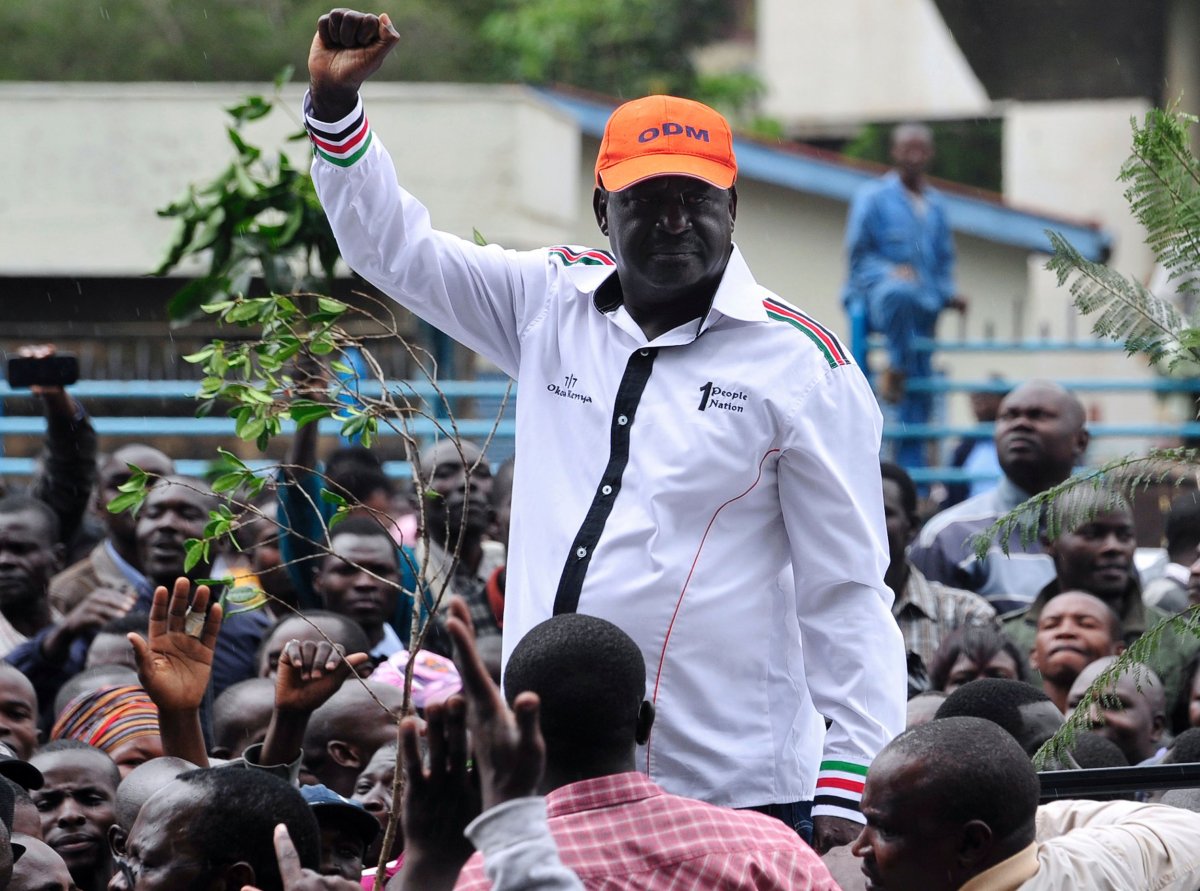
Unlike Kenyatta, Odinga was never brought before the ICC for his role in the violence. Kibaki ultimately gave Odinga the position of prime minister, a post that has since been abolished after Odinga lost out in the 2013 election.
Odinga, three times Kenya's almost-man, will be hoping to finally secure the top job in the 2017 elections.
Uncommon Knowledge
Newsweek is committed to challenging conventional wisdom and finding connections in the search for common ground.
Newsweek is committed to challenging conventional wisdom and finding connections in the search for common ground.
About the writer
Conor is a staff writer for Newsweek covering Africa, with a focus on Nigeria, security and conflict.
To read how Newsweek uses AI as a newsroom tool, Click here.








